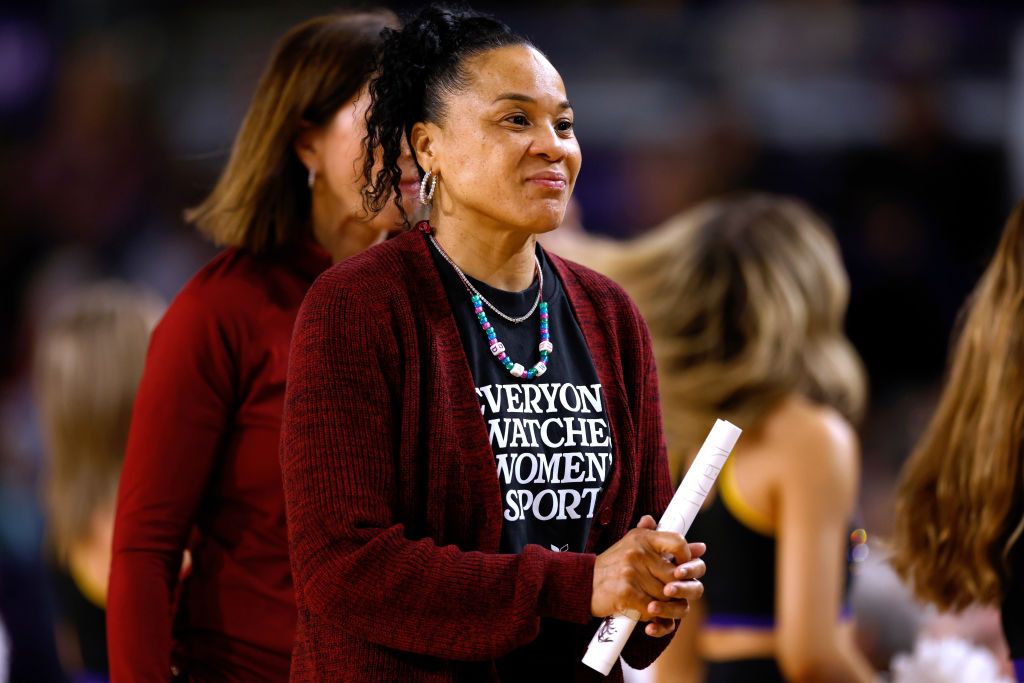
Dawn Staley, head coach of the University of South Carolina women’s basketball team, has long been an advocate for her players, both on and off the court. Known for her leadership and commitment to empowering student-athletes, Staley has now emerged as one of the prominent voices in the conversation surrounding Name, Image, and Likeness (NIL) deals in college sports. In a series of recent remarks, Staley emphasized how NIL is not just an opportunity for players to profit during their time in college, but also a vital tool for securing their futures and ensuring their success in life after basketball.
With the rise of NIL legislation, athletes across various college sports have been presented with opportunities to profit from their personal brand while still competing at the collegiate level. The ability to sign endorsement deals, sell merchandise, and even profit from social media presence has fundamentally changed the dynamics of college athletics. For a program like South Carolina, where the women’s basketball team has seen remarkable success under Staley’s leadership, NIL has become an essential part of ensuring that players are not just taken care of financially but also positioned for success in their future careers.
The Evolution of NIL in College Sports
To understand Staley’s perspective on NIL, it’s essential to look at the broader context of its rise in college sports. NIL rules were officially implemented by the NCAA in July 2021, allowing athletes to profit from their name, image, and likeness while maintaining their eligibility. Prior to this, college athletes were prohibited from receiving compensation beyond scholarships, leaving many of the country’s top players without the opportunity to benefit financially from their own fame. NIL agreements now allow athletes to sign endorsement deals, make money from social media posts, run camps and clinics, and leverage their platforms in a variety of ways.
For women’s basketball programs, the changes have been particularly significant. Female athletes had historically been underrepresented in endorsement deals, with fewer sponsorships and less media attention compared to their male counterparts. NIL has helped level the playing field, with top-tier women’s athletes now finding themselves in a position to earn substantial income. For South Carolina’s women’s basketball team, which has won multiple national championships under Staley’s leadership, the implementation of NIL has opened up new opportunities for players to gain exposure and financial support while still pursuing their academic and athletic goals.
Staley’s Vision for Her Players’ Futures
Staley’s remarks on the importance of NIL stem from her unwavering dedication to the holistic development of her players. As a former Olympic gold medalist and one of the most successful coaches in NCAA history, Staley understands that the career of a college athlete can be fleeting. Most college athletes will not go on to play professionally, and those who do often face the reality of a short-lived career in sports. This is why Staley has long advocated for a focus on preparing athletes for life after basketball—something that NIL opportunities can help facilitate.
“NIL is more than just about making money,” Staley said in a recent interview. “It’s about setting our players up for long-term success, for financial independence, and for building something that will help them when they leave the game.” She further explained that NIL can give players the platform to build their personal brands, engage with their communities, and develop skills in entrepreneurship, marketing, and social media—all of which will benefit them long after they graduate from college.
For Staley, the promise of NIL is particularly important for players who may not have the opportunity to pursue professional basketball, where careers are often short and financial stability can be uncertain. She sees NIL as a way to create a safety net for players, offering them a way to earn income and develop a business acumen that could serve them in a variety of fields post-graduation.
NIL at South Carolina: A Game-Changer
At South Carolina, the introduction of NIL has had a significant impact. The Gamecocks, who have been one of the top programs in women’s basketball for the last decade, have seen several players benefit from NIL deals. Star players such as Aliyah Boston, who was a key figure in leading the team to a national championship in 2022, have secured high-profile sponsorships with brands like Under Armour, Gatorade, and many others. Boston, who was the 2022 NCAA Player of the Year, has leveraged her platform to create a robust social media presence and to engage in meaningful brand partnerships that extend far beyond the basketball court.
For Staley, seeing her players succeed off the court is just as important as their success on the court. She has been vocal about her commitment to helping her athletes make the most of these opportunities, whether it’s through guiding them on how to negotiate contracts, develop business relationships, or simply how to manage their newfound visibility. Her coaching philosophy goes beyond teaching basketball; she wants to equip her players with the skills and mindset necessary to thrive in all aspects of their lives.
“The goal is not just to win championships, but to help our players win in life,” Staley stated. “NIL provides them with a unique chance to control their narrative and build a foundation for their futures.”
A New Era for College Athletes
The influence of NIL is changing the way college sports operate. While some critics argue that NIL deals have created a “pay-for-play” environment, where athletes are recruited based on financial incentives rather than solely athletic ability, Staley believes that NIL allows athletes to receive fair compensation for the work they put into their sport. “These athletes are celebrities on their campuses and in their communities. They deserve to have the ability to profit from their image,” she said.
Furthermore, Staley views NIL as a tool to empower athletes of all genders, races, and backgrounds. Historically, women’s sports have been underfunded and undervalued in comparison to men’s sports, but NIL has given female athletes the opportunity to build a more equitable playing field. As one of the most successful Black coaches in college basketball, Staley sees NIL as an avenue for her players to build a legacy not just in basketball, but in business, culture, and beyond.
For Staley, this new era of college athletics is an exciting opportunity to reshape the future of college sports. With NIL, athletes no longer have to choose between their education and their financial well-being. They can thrive both academically and athletically while simultaneously preparing for their post-college careers. As Staley put it, “We’re entering a new era, and it’s one where our athletes are finally able to take control of their futures.”
The Road Ahead
While NIL has provided an exciting new opportunity for student-athletes, it also comes with its own set of challenges. As the landscape continues to evolve, questions about regulation, equity, and the potential for exploitation will remain at the forefront of the debate. However, for Staley and her players, the positive impact of NIL has been undeniable.
As college basketball continues to grow in popularity and players continue to secure lucrative NIL deals, Staley’s focus remains on ensuring that her players are not just prepared for the rigors of competition, but also for life beyond the court. Through NIL, South Carolina’s players have a chance to secure their financial futures and build a brand that will last long after they leave college.
In this rapidly changing landscape, Dawn Staley stands as a guiding force, using her platform and influence to ensure that her players are equipped for success in every aspect of their lives. For her, NIL is not just a tool for athletes to capitalize on their immediate fame, but a stepping stone toward long-term success, both in their careers and in their personal lives.






